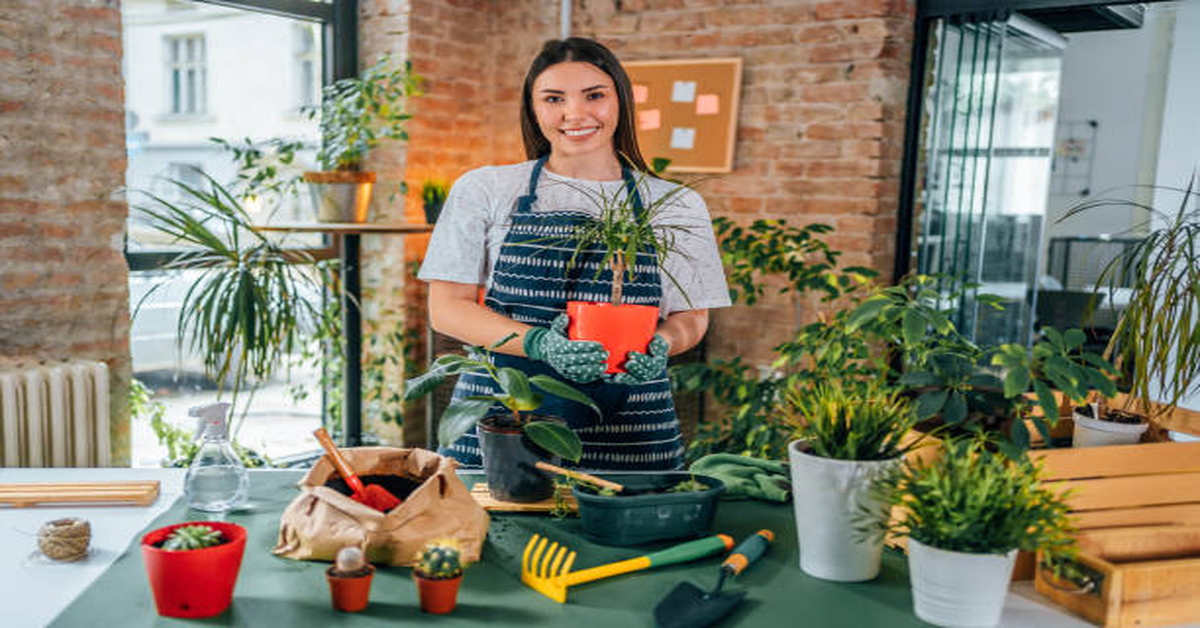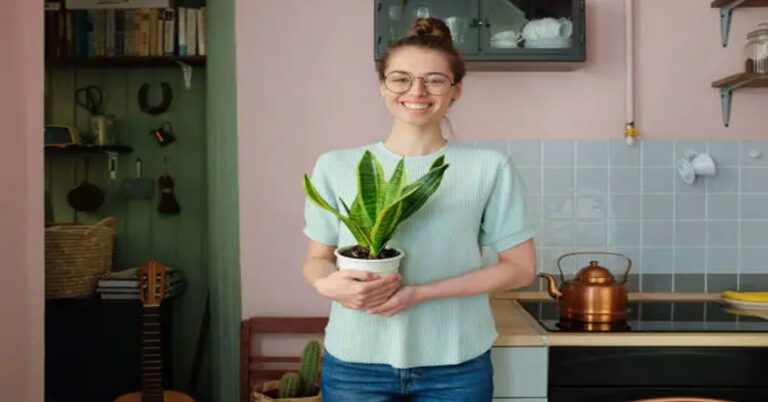
Best Plants for Beginners starting a journey into gardening or houseplant care can feel intimidating for beginners. With endless choices of plants, each with its own unique requirements for light, water, soil, and temperature, it can be hard to know where to begin. Many people worry about killing their plants, forgetting to water them, or not having the right environment. These concerns are natural, but the good news is that there are plenty of plants well-suited for beginners.
Choosing the right plants when you’re starting out makes all the difference. Best Plants for Beginners are usually hardy, forgiving, and adaptable to various conditions. They do not require constant attention or advanced techniques. Instead, they provide a balance of resilience and beauty, rewarding even the smallest efforts. Whether you live in a small apartment with limited sunlight or a house with a garden, there are beginner plants that will thrive in your care.
This article will serve as a complete guide to the best plants for beginners. We’ll look at houseplants, outdoor plants, edible plants, succulents, and flowering options. Each section will include details about their care requirements, benefits, and why they are perfect for new gardeners. Tables will be used for clarity, and FAQs will address common doubts. By the end, you will have the confidence to select plants that will grow successfully and bring life to your home.
Why Beginners Need the Right Plants
Best Plants for Beginners set themselves up for failure by starting with demanding or delicate plants. Orchids, for instance, while beautiful, require very specific humidity and watering schedules. Similarly, bonsai trees look attractive but need detailed pruning and care. For someone just starting, this can lead to frustration and discouragement.
Best Plants for Beginners. They tolerate a range of conditions, survive occasional neglect, and bounce back from mistakes. This is essential because beginners are still learning the basics of watering, light placement, repotting, and understanding plant signals. With beginner plants, small mistakes won’t lead to immediate death, and you gain confidence while developing your skills.
Qualities of Beginner-Friendly Plants
When selecting plants suitable Best Plants for Beginners, certain qualities stand out:
| Quality | Why It Matters |
|---|---|
| Hardiness | They tolerate a wide range of environmental conditions. |
| Low Water Needs | Beginner plants often prefer occasional neglect over overwatering. |
| Adaptability | They can survive in both indirect sunlight or partial shade. |
| Pest Resistance | Less likely to attract pests compared to delicate species. |
| Slow Growth | They do not require frequent pruning or repotting. |
| Visual Appeal | They provide greenery or flowers that motivate beginners to continue gardening. |
Best Indoor Plants for Beginners
Best Plants for Beginners are popular because they bring life into apartments and homes, improve air quality, and require little space. Best Plants for Beginners, the following are top choices:
1. Snake Plant (Sansevieria)
Best Plants for Beginners is nearly indestructible. Its tall, upright leaves with striking patterns make it both decorative and low-maintenance.
- Light Needs: Tolerates low light but thrives in indirect sunlight.
- Watering: Needs watering only every 2–3 weeks. Prefers to be underwatered rather than overwatered.
- Special Benefit: Excellent air purifier.
2. Spider Plant (Chlorophytum comosum)
With long arching leaves and baby “spiderettes” hanging down, the spider plant is beginner-friendly and visually striking.
- Light Needs: Indirect sunlight works best.
- Watering: Once a week or when soil is dry.
- Special Benefit: Removes toxins like carbon monoxide from the air.
3. Pothos (Epipremnum aureum)
Best Plants for Beginners known as “devil’s ivy,” pothos grows fast, trailing from shelves or hanging baskets.
- Light Needs: Can tolerate low light but grows faster in bright indirect light.
- Watering: Every 1–2 weeks.
- Special Benefit: Easy to propagate in water, perfect for sharing with friends.
4. Peace Lily (Spathiphyllum)
For those who want blooms, the peace lily is forgiving and provides elegant white flowers.
- Light Needs: Low to medium light.
- Watering: Once a week; drooping leaves remind you to water.
- Special Benefit: Improves indoor humidity and air quality.
| Plant Name | Light Needs | Watering Frequency | Key Benefit |
|---|---|---|---|
| Snake Plant | Low to indirect sun | Every 2–3 weeks | Air purification |
| Spider Plant | Indirect sunlight | Weekly | Removes toxins |
| Pothos | Low to indirect sun | 1–2 weeks | Easy propagation |
| Peace Lily | Low to medium light | Weekly | Produces white flowers |
Best Outdoor Plants for Beginners
Outdoor gardening allows for more variety, from flowers to shrubs. Beginners should start with hardy outdoor plants that withstand varying weather.
1. Marigolds
Bright, cheerful flowers that bloom throughout the season.
- Light Needs: Full sun.
- Watering: Moderate; avoid soggy soil.
- Benefit: Repels pests, great for companion planting.
2. Sunflowers
Iconic for their tall stalks and vibrant blooms.
- Light Needs: Full sun.
- Watering: Regular but well-drained soil.
- Benefit: Easy to grow from seeds.
3. Lavender
Aromatic and resilient, lavender thrives in most gardens.
- Light Needs: Full sun.
- Watering: Prefers dry soil, water sparingly.
- Benefit: Attracts pollinators, repels mosquitoes.
4. Zinnias
Colorful, fast-growing flowers perfect for beginners.
- Light Needs: Full sun.
- Watering: Weekly, moderate.
- Benefit: Long-lasting cut flowers.
| Outdoor Plant | Light Needs | Watering Frequency | Extra Benefit |
|---|---|---|---|
| Marigolds | Full sun | Moderate | Repels pests |
| Sunflowers | Full sun | Regular | Easy to grow from seeds |
| Lavender | Full sun | Sparing | Attracts pollinators, aromatic |
| Zinnias | Full sun | Weekly | Colorful cut flowers |
Best Succulents for Beginners
Succulents are ideal because they store water, making them resilient against neglect.
1. Aloe Vera
Famous for its medicinal gel.
- Light Needs: Bright indirect light.
- Watering: Every 3 weeks.
- Benefit: Gel can soothe burns.
2. Jade Plant
Symbol of good luck in many cultures.
- Light Needs: Bright light.
- Watering: Sparingly; prefers dry soil.
- Benefit: Can live for decades.
3. Echeveria
Rosette-shaped succulent with pastel colors.
- Light Needs: Bright sunlight.
- Watering: Once every 2–3 weeks.
- Benefit: Adds decorative appeal indoors or outdoors.
Best Edible Plants for Beginners
Best Plants for Beginners growing your own food is rewarding. Some vegetables and herbs are particularly easy for beginners.
1. Basil
Simple herb that grows quickly.
- Light Needs: 6 hours of sunlight.
- Watering: Regular, moist soil.
- Benefit: Fresh leaves for cooking.
2. Mint
Spreads quickly and is very forgiving.
- Light Needs: Partial shade or sun.
- Watering: Regular.
- Benefit: Refreshing flavor for tea and dishes.
3. Tomatoes
One of the most popular beginner vegetables.
- Light Needs: Full sun.
- Watering: Regular but not excessive.
- Benefit: High yield for little effort.
4. Lettuce
Fast-growing leafy vegetable.
- Light Needs: Partial sun.
- Watering: Keep soil consistently moist.
- Benefit: Can harvest leaves continuously.
| Edible Plant | Light Needs | Watering Frequency | Benefit |
|---|---|---|---|
| Basil | Full sun | Regular | Fresh herb for cooking |
| Mint | Sun/shade | Regular | Refreshing for tea |
| Tomatoes | Full sun | Regular | High yield |
| Lettuce | Partial sun | Moist soil | Continuous harvesting |
Best Flowering Plants for Beginners
Best Plants for Beginners for those who want blooms without heavy maintenance:
- Geraniums: Bright flowers, tolerate sun and shade.
- Begonias: Ideal for shaded balconies or gardens.
- Petunias: Thrive in containers and gardens, bloom profusely.
- Impatiens: Shade-loving flowers, perfect for low-light gardens.
Common Mistakes Beginners Make
- Overwatering: Plants die more from too much water than too little.
- Ignoring Light Requirements: Some plants need direct sunlight, others don’t.
- Skipping Drainage: Pots without holes cause root rot.
- Too Much Fertilizer: Beginners often think more food equals more growth, but it can burn plants.
- Lack of Patience: Plants grow slowly; expecting overnight results leads to disappointment.
Conclusion
Choosing the best plants for beginners is not just about convenience but also about creating an encouraging, enjoyable experience that builds confidence. From resilient houseplants like snake plants and pothos to outdoor beauties like marigolds and sunflowers, to succulents like aloe vera and jade plants, the choices are vast yet beginner-friendly. Adding herbs like basil or mint makes the experience edible and rewarding.
By starting with these plants, beginners can learn the essentials of plant care—watering, light, soil, and patience—without feeling overwhelmed. Over time, these early successes build the foundation for exploring more complex species and creating thriving gardens or plant collections.
FAQs
1. What is the easiest best plants for beginners?
The snake plant and pothos are among the easiest, thriving even with neglect.
2. Which edible plants are beginner-friendly?
Basil, mint, tomatoes, and lettuce are great choices due to their low maintenance.
3. Can beginners grow flowering plants?
Yes, flowers like marigolds, geraniums, and petunias are excellent for first-time gardeners.
4. Do succulents require much care?
No, succulents like aloe vera and jade thrive with minimal watering and bright light.
5. What mistakes should beginners avoid?
Avoid overwatering, neglecting light requirements, and skipping drainage holes in pots.






